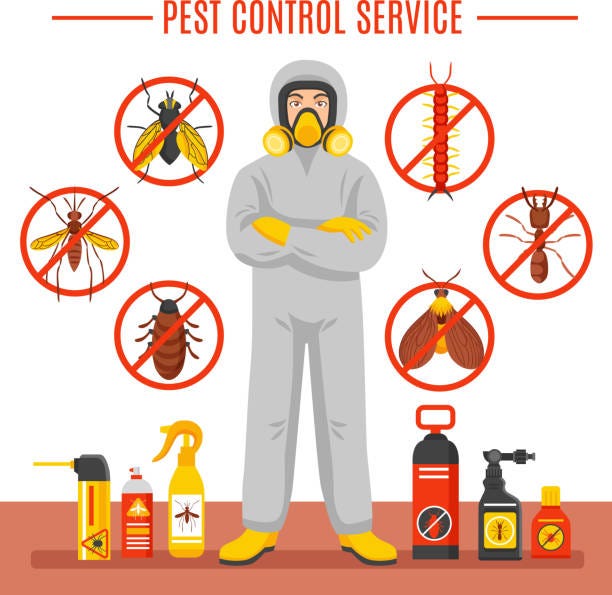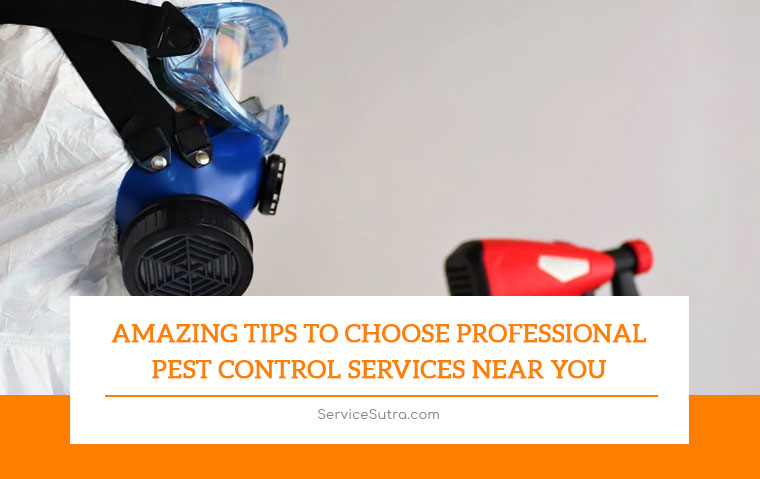Top-rated Pest Control Clovis Solutions: Your Peace of Mind
Wiki Article
Recognizing the Various Strategies to Insect Control: A Comprehensive Overview

Natural Bug Control Approaches
Using eco-friendly techniques such as buddy growing and organic parasite control is vital for successfully handling bugs in farming settings. Buddy planting involves growing different crops in proximity to deter pests, boost nutrient uptake, and boost total plant health and wellness. For instance, planting marigolds alongside tomatoes can help fend off nematodes. Similarly, intercropping maize with legumes can interfere with the reproduction patterns of insects like corn borers.Biological pest control includes presenting natural predators or virus to manage pest populations. Ladybugs, as an example, feed upon aphids, regulating their numbers without the requirement for chemical pesticides. An additional example is making use of Bacillus thuringiensis (Bt), a germs that targets specific insect parasites while being safe to humans, pets, and advantageous pests.
These green techniques not just decrease the reliance on artificial pesticides however additionally help maintain biodiversity and soil health and wellness. By including natural parasite control approaches into farming techniques, farmers can achieve lasting parasite management while decreasing adverse effects on the setting.

Chemical Pest Control Solutions
In addition to all-natural pest control techniques, the application of chemical insect control options plays a significant role in efficiently handling pest populaces in farming settings. Chemical insect control services are developed to target certain parasites that might create extensive damage to crops. These services commonly consist of synthetic chemicals that are developed to remove bugs swiftly and successfully.Among the key advantages of chemical pest control solutions is their effectiveness in controlling pest problems on a huge range. Farmers can use these solutions using various methods such as splashing, airing out, or seed therapy to secure their crops from hazardous insects, weeds, and conditions. In addition, chemical bug control services are relatively easy to use and can give fast results, helping farmers safeguard their yields and decrease financial losses.
Nonetheless, it is necessary to utilize chemical pest control solutions carefully to decrease prospective negative effect on the atmosphere, non-target microorganisms, and human health and wellness. Proper application methods, adherence to safety standards, and regular tracking are critical to make sure the accountable use of chemical bug control services in agricultural techniques.
Biological Bug Control Approaches
Biological insect control comes close to utilize all-natural killers or pathogens to manage bug populaces in agricultural settings successfully. One typical organic control strategy is the intro of natural enemies, such as ladybugs or parasitic wasps, to target particular insects.One more organic control method includes making use of virus like fungi, bacteria, or infections to infect and eliminate parasites. On the whole, biological insect control approaches use a sustainable and targeted remedy to pest monitoring in farming.
Integrated Parasite Monitoring (IPM)
Integrated Insect Monitoring (IPM) is a detailed strategy that integrates numerous pest control methods to successfully handle and decrease pest populations in agricultural systems. IPM concentrates on long-term prevention of parasites through a combination of organic, social, physical, and chemical control approaches. By integrating these various techniques, IPM aims to decrease dependence on chemical pesticides, reduce environmental effect, and advertise sustainable bug monitoring practices.
One key facet of IPM is using organic controls such as all-natural killers, parasites, and pathogens to manage bug populaces. This approach harnesses the power of nature to preserve a balance between bugs and their all-natural adversaries without creating harm to the environment.
Additionally, IPM includes cultural methods like crop hygiene, environment, and turning control to produce undesirable problems for insects and disrupt have a peek here their life cycles. Physical controls such as composts, obstacles, and catches are likewise used to stop bug problems.
Mechanical and Physical Parasite Control Strategies
Making use of non-chemical approaches, such as physical and mechanical pest control techniques, is a critical element of detailed insect management approaches, constructing upon the foundation of Integrated Parasite Monitoring's alternative approach. Mechanical parasite control includes making use of physical obstacles or catches to avoid pests from accessing and harming crops or frameworks. This technique can include strategies like navigate here setting up displays on windows, using row covers in farming, or employing sticky catches to catch pests.Physical insect control methods, on the various other hand, concentrate on straight eliminating parasites with physical methods. For example, using warm therapies to eradicate bed insects or vacuuming up pests like ants or crawlers can be reliable methods to handle invasions without making use of chemicals. By integrating these mechanical and physical bug control techniques into an Integrated Bug Management plan, people and experts can minimize dependence on pesticides while still successfully minimizing and handling pest populaces damages.
Conclusion

In addition to all-natural insect control approaches, the use of chemical insect control solutions plays a substantial function in effectively handling pest populations in agricultural atmospheres.One of the crucial advantages of chemical parasite control options is their effectiveness in managing pest problems on a large range.Integrated Insect Monitoring (IPM) is an extensive approach that incorporates different parasite control techniques to properly manage and lessen pest populations in agricultural systems.Making use of non-chemical methods, such as physical and mechanical pest control methods, is check over here an important aspect of extensive parasite management methods, constructing upon the foundation of Integrated Bug Monitoring's holistic technique. By including these mechanical and physical insect control techniques right into an Integrated Pest Management plan, professionals and individuals can minimize dependence on chemicals while still efficiently minimizing and handling pest populations damages.
Report this wiki page